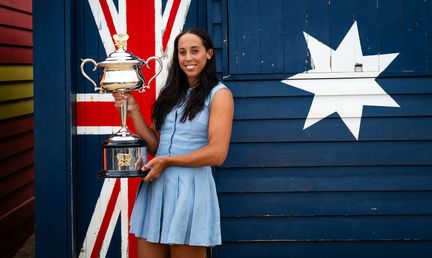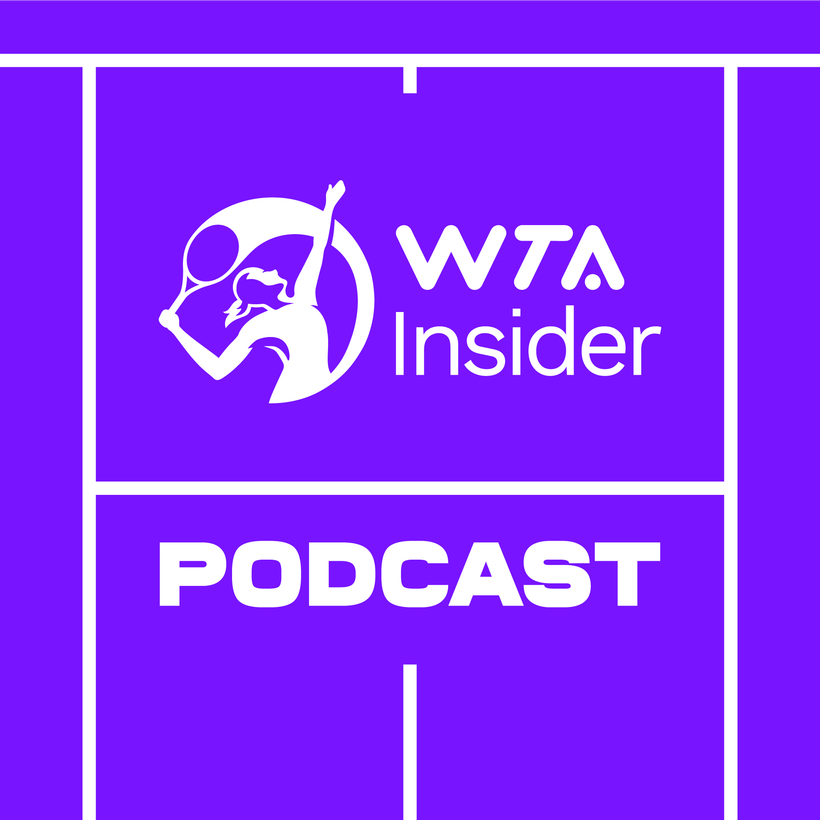She turns 40 on Sept. 26, and the arithmetic long ago started working against her. Every time a major like the fast-approaching US Open rolls around, it is easy to wonder how many more chances Serena Williams will have to conquer the last titanic challenge of her career and finish her four-year chase of a 24th Grand Slam singles title, which would tie her with Margaret Court for most ever.
The record was once considered a lock for Williams after she won the 2017 Australian Open, her last Grand Slam title. It has now turned into a Sisyphean struggle that grows more dramatic and urgent the longer she presses on.
Just to arrive at the US Open, which begins Aug. 30, Williams has had to come back from a pulmonary embolism after the birth of her daughter, Olympia, that could’ve killed her in 2017 had she not realized what was going on and challenged the nurses and doctors when they tried to take some half-measures first. “I was like, a Doppler? I told you, I need a CT scan and a heparin drip,” Serena recounted to Vogue magazine, and she was right. She’d had a life-threatening embolism before.
That setback kept Williams bedridden for six weeks, and she didn’t return to the tour for a year and a half. She’s also had to recover from injuries to her ankle, shoulder and Achilles’ tendon. She’s had to wait out the pandemic and last year’s cancellation of Wimbledon, a title she’s won seven times. At the past 13 majors she’s played, Williams has lost to some of the best in the world, like Naomi Osaka, and she’s been shocked by prohibitive underdogs such as Wang Qiang of China. She’s winless (and has not won a set) in her past four major finals dating back to 2019.
Williams credits the depth of players on the WTA Tour now for her most surprising losses, insisting that even in the early rounds there are no easy matches anymore. She loves motherhood and has joked she would “not be able to go function” without 4-year-old Alexis with her because, “I think I would be in a depression. We've been together every day of her life.
“Is that healthy? -- not at all,” Serena said to much laughter.
Every major that Williams goes to now, it’s become apparent the Grand Slam crowds -- knowing what’s at stake, knowing how legendary she’s been -- are rooting for her to finally get No. 24.
There was a new, deeper poignancy this year when she lost in the semifinals at the Australian. An emotional Williams put her hand over her heart as she walked off when the ovation for her thundered on and on. Then she paused to take a long look around. When told at her post-match press conference that she looked as if she was saying farewell, Williams shot back, “If I ever say farewell, I wouldn’t tell anybody.” Then Williams got so choked up she rose and left a couple minutes later.
Her downfall and exit at Wimbledon this year with the field already missing past champions Osaka and Simona Halep was even more emotional. Williams found herself fighting back tears as she attempted to serve in her first-round match after falling hard once, then twice. The second time Williams fell, the Wimbledon crowd gasped in horror.
Then, seeing her distressed and limping, the crowd began clapping and roaring encouragement to her. Some fans shouted how much they loved her. It was an extraordinary scene. But Williams had injured her right hamstring, her coach Patrick Mouratoglou told ESPN, and she was forced to retire at 3-all in the first set.
“I’m heartbroken,” Serena said.
Williams used to insist she didn’t get nervous during her chase of milestones like Court’s record, or her run at the 2015 calendar-year Grand Slam, which was short-circuited when Roberta Vinci pulled off her monumental upset of Williams in the US Open semis. But Mouratoglou contradicted that back then. And Williams has since abandoned trying to argue differently as well.
She does feel the enormity of what tying or passing Court would mean. It’s as if the same fierce will to win and perfectionist bent that’s driven her through her entire career is among the things making it harder for her to tie Court’s record. Serena said as much herself at the 2018 Australian Open: [“The record] is definitely on my shoulders and mind.” And again at this year’s French Open, after losing in straight sets to 21st-seeded Elena Rybakina in the fourth round.
“I just need to find ‘me,’” Serena told reporters that day in Paris. “Nobody else is Serena out here. It’s me. … I'm so close. There is literally a point here, a point there, that could change the whole course of the match.”
The only thing more remarkable than how long Williams’ chase has lasted and all that’s been thrown her way is how determined Williams remains. No man or woman has ever won a Grand Slam singles title past the age of 37, which Ken Rosewall did at the Australian Open in 1972. Stefanie Graf was retired by age 29, Chris Evert won her last major at 31 and Martina Navratilova’s last hurrah as a singles player came when she lost her last Wimbledon final at age 37.
At certain junctures, Serena has admitted No. 24 is among the only reasons she’s still playing, and she’s insisted, “I think it’s good to be on my mind.”
A legion of experts and fans agree Williams, whose 23 major titles is an Open Era record, doesn’t need the record to be considered best ever, and those experts include greats such as Evert, Billie Jean King and Federer. In her more philosophical moments, even Williams says she tries to remind herself how much she’s achieved if she remains on Slam title No. 23.
“I've been definitely proudly stuck here, party of one -- I'm pretty happy about it,” Williams said in 2020.
But she’s since rolled that back, too. Williams wants to tie or eclipse Court’s record, all right.
Badly.
“I’m never going to stop until I retire,” Williams says. “That’s how I got to be here. That’s just me.”
Johnette Howard is a longtime journalist who collaborated with Billie Jean King on her just-released autobiography “All In."





![Madison Keys won her maiden Grand Slam title at the 2025 Australian Open by saving one match point against No.2 Iga Swiatek in the semifinals to win 5-7, 6-1, 7-6[8] and then beating No.1 Aryna Sabalenka in the final.](https://photoresources.wtatennis.com/photo-resources/2025/01/25/a8231ba0-92b7-41bf-a0c0-22a2a52f7834/GettyImages-2195186933.jpg?width=451&height=268)
![Madison Keys saved one match point as Iga Swiatek served at 6-5 in set three of their Australian Open semifinal. Keys won 5-7, 6-1, 7-6[8] to reach her second major final.](https://photoresources.wtatennis.com/photo-resources/2025/01/23/600d4aab-2bbe-4fc0-b44c-39334ee63c9e/Keys-SF-Jason-Heidrich-Icon-Sportswire.jpg?width=451&height=268)

